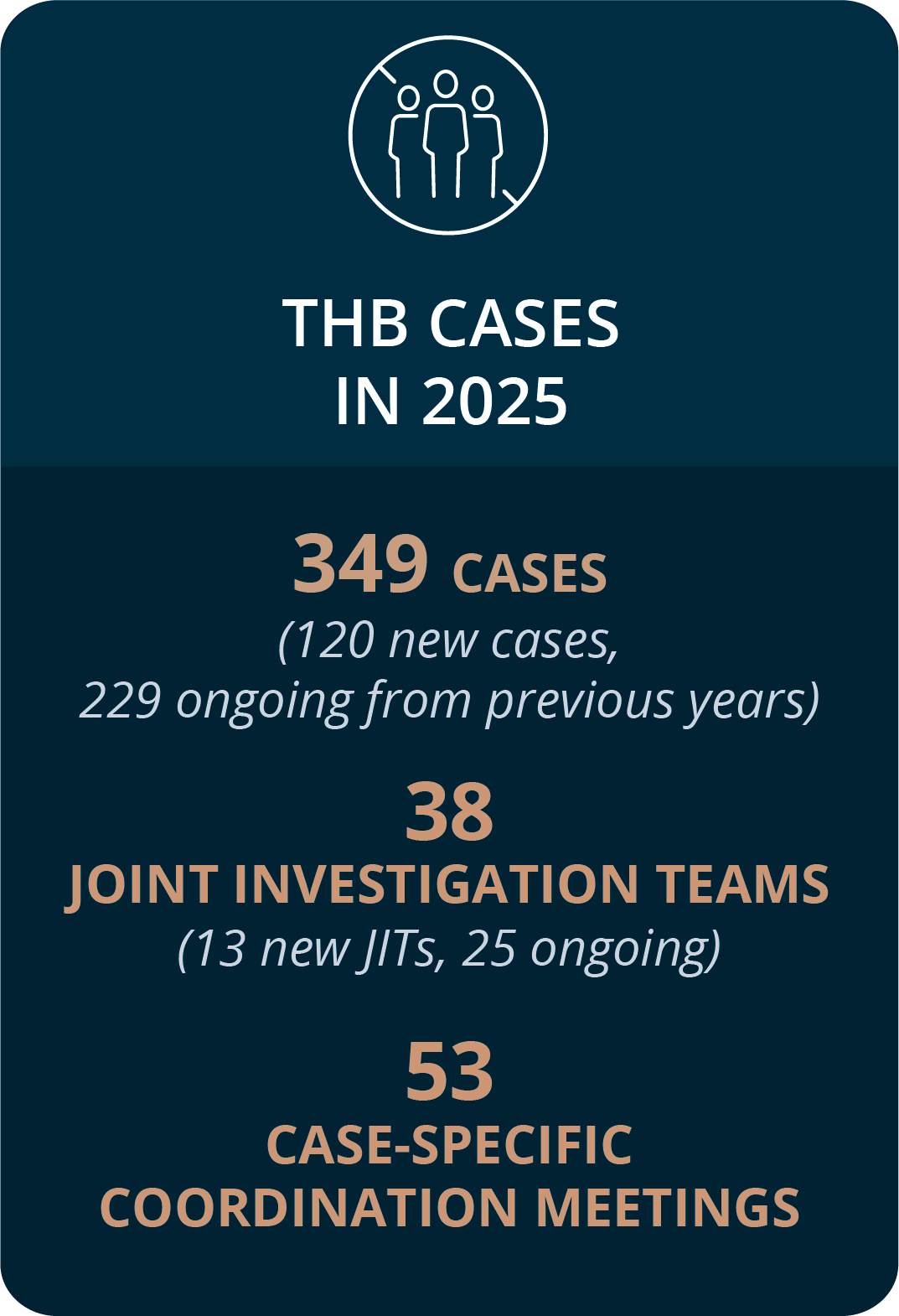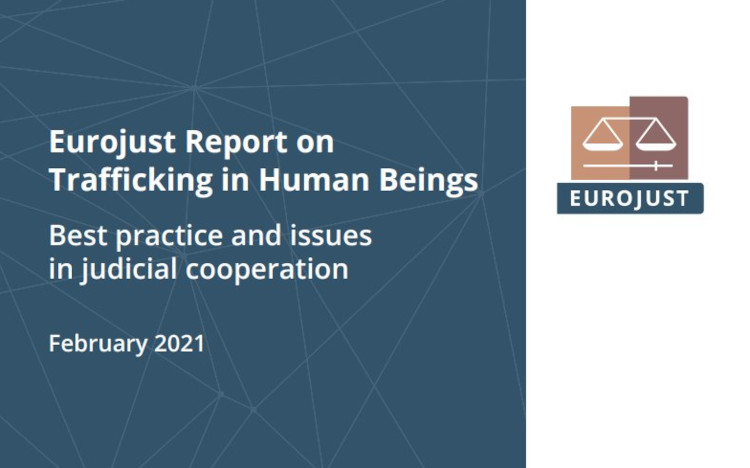Joint report of the JHA agencies’ network on the identification and protection of victims of human trafficking
October 2021
View report
Trafficking victims are subjected to various forms of exploitation, including forced labour, especially in the construction industry and in mining, fishing and agriculture. Domestic servitude, commercial sexual exploitation, child soldiers, child brides and forced marriage are also forms of human trafficking.
While trafficking in human beings affects people all over the world and from all walks of life, traffickers typically target society’s most desperate and vulnerable. For example, the victims of THB are often afflicted by other challenges, including poverty, unemployment and lack of education, as well as war and natural disasters such as earthquakes and floods. Meanwhile, women and children make up the vast majority of victims: according to the United Nations Office on Drugs and Crime, globally, 51% of trafficking victims are adult women, while a further 20% are girls.
In many instances, people forced into activities such as prostitution and slave labour are not immediately identifiable as victims and may be afraid to speak out and reveal their status due to fear of reprisals by the perpetrators. Furthermore, the action of forcibly moving people between countries means victims are not known to the authorities in the locations where they end up. By supporting national authorities in different ways to enable surveillance and other investigatory techniques, as well as effective information exchanges between the involved authorities, Eurojust helps authorities identify and locate victims more quickly.
As well as the support provided indirectly to victims during cases, Eurojust works closely with other EU and international institutions, including the European Institute for Gender Equality (EIGE), to support the protection and welfare of victims of trafficking. For example, in October 2018, Eurojust participated in the EMPACT THB ETUTU meeting in Stockholm to discuss strategies to better support Nigerian victims in Europe subjected to trafficking.
Eurojust joins the EU Victims’ Rights Platform
In 2020, Eurojust supported more than 8 800 criminal investigations, contributing to justice being delivered for nearly 95 000 victims of all forms of serious, cross-border crime. The interests of victims is one of the factors Eurojust considers when advising Member States on judicial issues, such as in the case of parallel proceedings or conflicting EAWs/extradition requests. The impact on victims is a particularly central element of Eurojust’s cases addressing trafficking in human beings.
At the High-level Conference on the EU Strategy on Victims’ Rights, organised by the European Commission together with the German Presidency in 2020, Eurojust announced its active participation in the new Victims’ Rights Platform created following the adoption of the first EU Strategy on Victims’ Rights.


